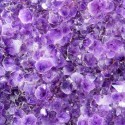36 Science-Backed Natural Remedies for Dry Cough
What is Dry Cough?
When coughing works as intended, it clears the lungs of built-up mucus or phlegm, excess liquid, or foreign and dangerous particles, making it a useful albeit uncomfortable symptom of many illnesses and conditions.
A dry cough includes all of the negative aspects of coughing without the benefit of clearing out the offending congestants.
It often presents as a persistent tickling in the throat or lungs that remains even after coughing and produces no phlegm.
This irritates the lungs and throat, causing a dry-like feeling and additional discomfort.
Having dry cough at night presents the additional challenge of preventing sleep.
If you suffer from a dry cough, you may be wondering how to cure it.
This list will provide you with over thirty ways to help remedy that pesky tickling in your lungs or throat.
While you may not have each of the remedies on hand, by the end of the article, you are sure to find at least one!
Several viral and bacterial infections cause a dry cough, such as the common cold, upper respiratory flu, and pneumonia.
Other conditions, such as asthma and lung cancer, also manifest this symptom.
On top of that, allergens, like plant spores and animal dander, pollutants, such as smog or smoke, and irritants, such as dust, powder, or sand, all irritate the lining of the lungs, which can also result in a dry cough.
With so many different ways to acquire this condition, knowing how to get rid of a cough and having a solid repertoire of home remedies for it will be necessary as we enter the flu and allergy seasons.
A dry cough itself causes additional symptoms such as nausea, sore throat, and hoarseness from the persistent and severe coughing.
Less-common symptoms include vomiting, fatigue, and loss of appetite, which occur due to the strain the dry cough puts onto the body.
At night, suffering from a dry cough may result in not getting enough sleep, leaving you tired and worn down and making it harder to fight off the cause.
Since infections and long-term conditions cause a dry cough, other symptoms from the infections or conditions may be present and exacerbate a dry cough, such as fever, aches, nasal congestion, and difficulty breathing.
If you think you have a bacterial infection or cancer, you should schedule an appointment with your doctor.
For a viral infection or other irritants, this list can provide you with information on how to cure a cough without having to leave your home.
How to Prevent a Dry Cough?
To prevent a dry cough that occurs from contagious diseases, wash your hands with soap before touching your face or eating, especially after shaking hands with people, touching anything that has been handled by others, and spending time in close-quarter spaces such as offices, schools, busses, or other public locations.
For those with a compromised immune system, covering your mouth with a handkerchief stops airborne pathogens from infecting you.
Handkerchiefs also provide protection for those with asthma or lung cancer from the additional airborne irritants mentioned above.
Avoiding dusty, mildewy, smoky, or polluted areas prevents exposure, but if it is unavoidable, medical masks or handkerchiefs help protect against most particles.
A healthy diet filled with Vitamins D and C boost the immune system and prevent infections from taking hold of the body.
Doctors advise that you drink plenty of water which will help moisten the lining of your lungs, allowing the tiny cilia to move particles or mucus out of your lungs more effectively.
Ensuring that you provide your body with the right nutrition keeps it strong enough to ward off diseases most of the time.
Sometimes, even with the proper nutrition and prevention tactics, infections or airborne irritants become unavoidable, such as if you work with an ill person, you have a young child in school, or if you live in a home with smokers or pet dander.
In these cases, when a dry cough cannot be avoided, remedies must be sought to offer some relief!
The remedies listed in this article will teach you how to get rid of a cough.
Conventional Methods
Most dry cough occurs due to viral infections, for which there is no medicine.
Usually, doctors recommend taking a decongestant, an expectorant, a cough suppressant, or a lozenge.
A decongestant works by reducing swelling in the affected sinus areas, preventing some post-nasal drip which may be the culprit behind a dry cough.
This medicine takes time to kick in and does not directly affect a cough, so it may not be the most immediate or effective relief.
An expectorant draws water from the rest of the body and into the lungs, helping to moisten and loosen the mucus built up on the lining that causes a cough.
This method does not prevent coughing; it only makes it more effective.
Moreover, a similar outcome can be reproduced by drinking more water.
Of course, you may want a method that will prevent a dry cough at night so you can acquire a full night of sleep.
If that is the case, this method is not for you.
A cough suppressant attempts to block the body’s natural cough reflex, though many studies have shown that the effect is negligible at best, and completely ineffective at worst.
Lozenges coat the throat with saliva and sugar and a soothing menthol or mint, but they do nothing for the lungs that cause a cough in the first place.
Home remedies for a dry cough can be much more effective than these.
If a dry cough may be a symptom of a bacterial infection or you suspect cancer or a more serious condition than a virus, consulting with a doctor is necessary, as they can prescribe antibiotics.
In the meantime, symptom relief from a cough can be achieved using some of these home remedies.
A dry cough that results from asthma or allergies may be treated with an antihistamine, i.e. a drug that blocks the body’s histamine production which causes inflammation and irritation when someone is exposed to foreign particles.
Antihistamines are not always effective and work better when taken before exposure.
For someone who has already been exposed and suffers from a dry cough, a home remedy provides immediate relief.
If you suffer from a dry cough after exposure to irritants, there are no conventional methods of relieving the cough other than to wait it out.
The following list of home remedies will provide you with insights into how to cure a dry cough and keep it away!
Honey
Conveniently found in almost every home, honey provides the most benefits and relief when it comes to treating a dry cough.
Honey possess antimicrobial properties, which can help to kill any bacteria or viruses that may be causing the cough.
With its thick viscosity, honey coats the throat, which can both provide relief from pain associated with a dry cough, as well as prevent the tickling in the throat from causing more coughing (1).
It works as a better cough suppressant than over-the-counter lozenges and tastes better, too.
Honey can be added to a number of the additional remedies that follow for added benefits.
Please note that honey contains the pathogen that causes botulism, so never give honey to children under two years old or people with significantly compromised immune systems (2).
Most children over two and adults are safe to consume honey, though.
To use honey, take one teaspoon by itself, or combine with some of the following remedies.
Broth Soups
Broth-based soups are one of the best treatments for a cough, especially one caused by a viral infection.
Many doctors recommend soup instead of over-the-counter drugs.
Aside from the hot water helping to soothe the throat and break up mucus, the many vegetables, roots, and spices used in soup combine together to make one nutritious cure.
Chicken soup has properties that prevent white blood cells from migrating quickly, thus helping them concentrate in affected areas.
A Vietnamese pho utilizes several of the beneficial vegetables and spices on this list, such as onion, ginger, cinnamon, black pepper, carrots, and basil, making it a powerhouse of cough-fighting nutrition.
Apple Cider Vinegar
Apple cider vinegar has become a go-to for several home remedies.
This comes as no surprise, as the acidic liquid provides several benefits that come from the probiotic “mother” found in unfiltered versions.
The acid content helps kill germs, and the beneficial probiotics fight off harmful bacteria.
Due to its popularity, you probably have some apple cider vinegar at home already.
Mix one tablespoon with an equal amount of honey into an 8 oz. glass of warm water to experience the soothing benefits.
The vinegar itself tastes bad, but the relief will be well worth it (3).
Take apple cider vinegar no more than three times a day, as the high acidity can cause stomach upset.
Lemons and Limes
As citrus fruits, lemons and limes possess large quantities of ascorbic acid or vitamin C.
You know this vitamin for its immune-boosting properties, so consuming a fruit with such a high amount of vitamin C may aid healing faster.
As an acid, vitamin C can also help to break down mucus and kill bacteria, both of which may be the culprit behind a dry cough.
To use lemon, make a hot tea and mix fresh-squeezed lemon or lime juice into the tea (4).
Honey may be added for flavor and extra benefits as illustrated previously.
Aside from the benefits of lemon, hot tea soothes the throat and can offer symptom relief temporarily.
Eucalyptus
Some modern pharmaceuticals use eucalyptus for a cough and lung congestion, as it has been used that way for hundreds of years.
The leaves provide a diluted topical solution that may be applied to the chest, as the strong, minty smell opens the airways and cools inflamed bronchial tubes.
Not only does it cool and soothe the affected area, but it is even known to loosen mucus so coughing will be more productive.
A few drops of eucalyptus oil can be added to a steam bath for a similar effect, but you should never use the oil undiluted, as it is very potent.
Diluted with a carrier oil, the oil of the eucalyptus can be applied to the skin just as the leaves can be (5).
Ginger
Ginger relieves two dry cough symptoms.
As a bronchodilator, ginger expands the bronchi in the lungs, increasing airflow (6).
This helps make coughing more effective.
Ginger also provides pain relief as an anti-inflammatory.
Since many of the causes of a dry cough result in inflamed airways or throat, ginger’s anti-inflammatory properties soothe discomfort caused by this inflammation.
Ginger can be consumed in a number of ways.
- Make a tea using freshly grated ginger steeped in boiling water. After straining, add honey and drink three times a day for optimal relief. This decoction makes for a spicy, warming treat.
- Chewing fresh ginger slices may also aid relief, though the spiciness may be unpleasant. A sugar coating makes ginger more palatable.
- Rubbing ginger slices on the chest provides relief through the oils and vapors.
- While less effective, in a pinch, dried ginger chunks or powdered ginger will work too. Some pre-packaged teas also include the root and can be used as well.
Salt Water
The reason a salt water gargle proves to be such a useful tool in combatting cough stems from the fact that it dries up water.
This antimicrobial property makes water deadly to any pathogens that may be residing in your throat, and it can help dry up the watery mucus that causes scratchiness in the throat as well (7).
Mix less than a teaspoon of salt with 8 ounces of warm water and gargle for 15-20 seconds at a time until the mixture is gone.
Children under six should not attempt to gargle liquids, as doing so presents a choking hazard and is often ineffective due to their inability to gargle properly.
Steam
Steam adds moisture back to the sinuses after being dried out by a cold or flu and can help loosen mucus and soothe any pain associated with a dry cough.
Mix in a few drops of essential oils found further in this list to provide even more direct relief.
If you do not have any essential oils on hand, most teas, mints, or roots can be used in the steam, too.
To steam, boil water and then let it sit until it is not too hot for human use.
Place a towel over your head and put your face over the bowl, breathing in the steam for ten minutes.
Peppermint
Peppermint, another minty, calming herb, provides cooling and soothing relief to dry a cough.
While sufficient evidence has not been found to prove its effectiveness, most people will still find relief for a sore, scratchy throat from the cooling effect peppermint has (8).
Peppermint can be taken several different ways.
As hard candy or gum, it coats the throat, offering relief from the itchiness that causes coughing, along with providing the cooling effect of the mint.
When taken as a tea, it hydrates the body and the hot tea breaks up mucus in the throat that may be causing further irritation.
Humidifier
Humidifiers prove to be one of the best reliefs for a cough for several reasons.
Dry, arid air can irritate the lining of the throat and lungs, so a humidifier adds necessary moisture to the air.
The added humidity loosens up mucus and makes breathing easier and less painful during the night, potentially preventing coughing (9).
Flu viruses also prefer cold, dry places, so a humidifier can help to ward off a viral infection.
There are many types of humidifiers to choose from, but which one you choose is not as important as its maintenance.
You should clean your humidifier after every use to prevent pathogens from building up inside and spreading via the device.
Tea Tree Oil
Tea tree oil is known for having potent antimicrobial and anti-inflammatory properties.
This makes the oil dangerous to use on its own but can provide significant relief if used properly (10).
Adding a few tiny drops of tea tree oil to a steam bath will cause the oil to dissipate with the steam and enter the airways safely, providing the oil’s benefits.
The strong, menthol-like fragrance opens the airways and soothes the lungs.
You could also add a few drops to a safe oil like almond or olive oil and rub it on the chest to experience the benefits.
Rock Candy
Like honey and lozenges, the sugar in rock candy helps to coat the throat and induce salivation, which helps to break down mucus, soothing pain and preventing the tickling or itching that may cause additional coughing.
In this way, it works like a cough suppressant.
While not as beneficial or nutritious as other options such as honey, it can be used in a pinch when no other home remedies are available.
You can make your own rock candy by melting sugar and corn syrup, adding flavoring, and pouring it into molds or onto a parchment-lined baking pan.
To make more nutritious lozenges, honey, lemon, and vitamin C can be added to the mixture for an on-the-go remedy.
Garlic
While not the most palatable remedy when taken by itself, history has shown garlic to have significant antimicrobial properties, as well as being an overall immune-system booster (12).
To use garlic, crush 2-3 cloves and boil in water, and add honey to taste.
For another option, add garlic cloves to a jar of honey and let the jar sit in the sun for a day or so until the honey tastes of garlic.
One teaspoon every few hours will relieve soreness and prevent the tingling that causes dry coughing.
You may also consume garlic by adding it to savory dishes, especially soups, for a tastier cure.
Onion
Herbalists have used onion for coughing and aspiration complaints about centuries.
In the modern era, onion is purported to have antiviral properties.
Some classic remedies for coughing include:
- Make a tea by boiling onion with honey and straining before serving. Garlic, radishes, salt, and watercress may be added for extra benefits.
- Using a blender, blend baby onions with honey, lemon juice, and radishes (13).
- Onion also makes for a great soup, either as the base for French Onion, or a healthy additive to chicken or beef stew. A whole onion, sliced in half, can be tossed in a pot of simmering broth to extract the most nutrients from the root vegetable.
Warm Milk and Honey
As noted previously, honey on its own has many properties that can prevent and cure a dry cough temporarily.
Drinking warm milk with honey can provide warmth, which will soothe the throat as well as offer the comforting effects of milk.
While a microwave can be used, it may damage some of the beneficial proteins found in milk, so warming it on the stove over low heat and adding the honey after serving is the recommended procedure.
The relaxing effect of this remedy helps prevent the cough reflex that is sometimes the cause of a dry cough, helping you or a child sleep through the night.
Cayenne Pepper
The heat from the capsaicin in cayenne pepper opens the sinuses and loosens mucus, which may be draining into the throat and causing a dry cough.
The heat also increases blood flow in the body, helping it to heal faster.
Aside from the heat benefits, cayenne pepper has several vitamins that benefit the body, such as vitamins A and C.
Since a whole pepper may be too hot, take cayenne powder mixed with apple cider vinegar and honey for an immune-boosting tonic.
For a more palatable solution, add cayenne pepper to a chicken or other broth-based soup for a spicy, flavorful cure.
Hot Shower
Like a steam, a hot shower opens the airways, providing both moisture to the dry lungs and throat and heat.
The heat has the added benefit of increasing blood flow, helping the body to heal faster.
The relaxing effect of hot showers also reduces stress, which can inhibit healing (14).
To make a shower extra effective, essential oils or Epsom salts with eucalyptus fragrance can be added to release vapors that help to clear the airways.
Even a shower gel with a minty fragrance will provide some soothing vapors during a hot shower.
Slippery Elm
Slippery elm works as a natural lubricant and pain reliever; many commercial lozenges use it as an ingredient (15).
It also aids in producing mucus, helping to alleviate a dry cough caused by dust or allergens.
If you cannot find a lozenge with slippery elm but can find the bark powder at a local grocer, you can create a tea by boiling water and mixing slippery elm powder with honey into the water.
Please note that slippery elm is not safe for anyone pregnant or breastfeeding.
Black Pepper
Black pepper increases blood flow to the throat, which may help the body heal faster.
Like other spices, it helps to open the airways and drain the mucus causing congestion or the postnasal drip responsible for a dry cough.
One way to take black pepper is to boil it in water and steep for ten minutes.
Mix with honey and drink.
Otherwise, incorporating black pepper into soup recipes can offer all of the benefits of the pepper, as well as the benefits of the rest of the soup ingredients.
Black pepper also goes well in spiced teas, such as chai, which can make drinking the spice more palatable.
Carrots
As a vitamin C-filled root, carrots help prevent coughing and wheezing as the vitamin acts as an antioxidant (16, 17).
Juiced, a carrot provides a cool, soothing, and sweet drink to offset the inflammation caused by a dry cough.
Eating raw or cooked carrots will offer the same nutritional benefits, though adding carrots to a soup will help to extract more of the nutrients into the broth, providing a warming, delicious, and nutritious cure for cough-causing viruses.
Grapes
Grapes are another cool, soothing treat for a dry cough.
The antioxidants and anti-inflammatory properties of grapes make them a great fix (18).
For this dry cough remedy, either eat grapes whole and raw or buy a jug of grape juice to benefit from this fruit.
Raisins
Since raisins are dried grapes, they may have some of the same benefits as grapes, but in a more potent form (19).
A soothing syrup can be made by blending raisins with water and sugar and boiling into a thick syrup.
Aside from the antioxidants in the raisins, the syrup will coat the throat and provide relief from soreness or itchiness.
Nuts
In addition to being a nutrient-dense and delicious snack, nuts, especially almonds, have anti-inflammatory properties that can calm the inflamed bronchial tubes and throat lining of a cough sufferer (20).
You can either eat nuts raw, or soak them for 8-10 hours and blend them into nut butter with honey and a pinch of salt.
Eat the equivalent of 2-4 nuts three times a day for the most benefits.
Gelatin
With its thick, mucus-like texture, gelatin can be used to provide relief from a sore throat.
Dissolve a gelatin packet in hot water and drink once cooled.
The reason this dry cough remedy works is that it coats the lining of the throat to prevent a dry cough and relieve soreness.
The proteins in the gelatin can also help the body heal and repair itself.
Herbal Solutions for a Dry Cough
Teas
Herbal teas offer a warm, soothing drink for a dry cough.
Green teas, since they are not aged as long, have more antioxidants which can also help relieve coughing.
Mixed with honey and lemon, teas can provide a comforting and beneficial drink during a nasty bought of a cough.
Any hot liquid will help, but teas provide extra benefits and flavor (21).
Turmeric
Turmeric is a powerful spice for relieving any lung-related ailments, such as a cough or asthma.
Its oil is effective in removing sputum, thus relieving cough (22).
You may make a simple turmeric tonic by simmering it with some water, but a more delicious remedy is to brew a pot of golden chai.
To make golden chai, simmer turmeric, cinnamon, cardamom, cloves, black pepper, a pinch of salt, and honey.
When done brewing, serve with a little milk for a latte.
Cinnamon
Cinnamon works as a powerful antimicrobial and antioxidant, both useful properties when combating a chronic cough (23).
The heat from cinnamon can also increase blood flow and promote healing.
Take cinnamon as a tea, added to tea or your apple cider vinegar tonic, or mix with honey and take a small teaspoon whenever you need relief from your cough.
Marshmallow Root
Marshmallow root works by swelling in water and creating a mucus layer, which helps to relieve unproductive dry cough (24).
This beneficial root can be taken as a tea by itself or combined with other beneficial herbs and spices for a healing treatment.
Aniseed
This herb loosens mucus and relieves a sore throat when taken as a tea, especially with other beneficial herbs like marshmallow root and thyme (25).
Steep aniseed in near-boiling water for 5-8 minutes and drink the resulting tea.
A number of other herbs and spices may be added to flavor the tea, or provide additional cough-relieving properties.
Thyme
While thyme has not been studied enough to prove its effectiveness, many still swear by it.
To use, mix dried thyme or bruised fresh thyme and boil for eight minutes in a tea.
Even if the thyme itself does not provide benefits, the warm tea will offer some relief from a cough.
Combined with other herbs like aniseed or marshmallow root, thyme has proved to be somewhat effective (26).
Oregano
A delicious Italian spice, oregano brews a surprisingly useful tea said to loosen phlegm and soothe sore throats.
Steep oregano leaves in near-boiling water for 8-10 minutes and drink the tea throughout the day to experience all of the benefits.
Another way to consume oregano is to add it to soups for extra flavoring and so that the nutrients will be fully extracted and consumed.
Flaxseeds
Ancient healers prescribed flaxseeds for a cough regularly, and many traditional markets still recommend the food for lung-related ailments.
It is a known anti-inflammatory, which may be one reason why it works (27).
Flaxseeds can be boiled with water and consumed like tea, or they can be eaten with a granola mixture or mixed in with a smoothie.
As a food, they have several cooking properties and uses, so you will easily find some way to incorporate them into your diet during your bout with a dry cough.
Iceland Moss Thallus
This lichen’s antitussive and abirritative properties have made it a go-to herb for a dry cough for hundreds of years, as it provides a mucus layer that soothes the throat lining and prevents additional coughing.
It can be taken as a tea with other beneficial herbs (28).
Ribwort Plantain Leaf
This herb works by swelling in water and creating a mucus layer that coats the lining of the throat, relieving soreness and working as a cough suppressant (29).
Taken as a tea with other herbal remedies, this can provide much-needed relief for a dry cough.
Basil
Basil has potent antioxidant properties that make it not only useful as a relief from a dry cough but can help you heal faster and cure your ailment causing the dry cough (30).
Dried basil can be steeped to create tea, or fresh basil can be crushed as a paste and mixed with ginger and honey for a remedy to take three times a day for the most benefit.
Indian Licorice
The anti-inflammatory properties of Indian licorice help to soothe the inflamed airways when afflicted with a dry cough (30).
The root also has anti-allergenic properties, so if a dry cough is caused by allergies, this may be the best solution for you.
This herb makes a healing tea that can be drunk for its benefits, or it can be added to other teas for a more delicious blend.
Boiled with water and honey, a tasty cough syrup can be made.
Do’s and Dont’s
Do’s
- Cover your mouth when you cough to prevent spreading infectious disease.
- Drink plenty of fluids, which your body needs to flush out the excess mucus and to heal itself.
- Wash your hands after touching anything in public places, shaking hands, or coughing.
- Get plenty of rest so your body can heal.
- Eat regular, nutritious meals, especially cough-fighting soups, to help the body rebuild itself while healing.
Don’ts
- Avoid lying flat on your back, as this can cause mucus to build up in the lungs.
- Avoid smoking, bonfire smoke, pollutants, dusty areas, or allergens.
- Avoid strenuous activity.
- Stay away from people who may be infected with the cold or influenza.
- Avoid foods that may increase phlegm production, such as fried foods and dairy.
Conclusion
A dry cough remains one of the most unpleasant symptoms of multiple diseases and conditions.
Whether it’s causing pain or nausea, preventing sleep, or growing so persistent as to affect your daily life, no one wants to suffer from this ailment for too long.
While most viruses can only be cured with time, and most bacterial infections will need a doctor’s treatment, this list of home remedies will hopefully provide you with an artillery of ideas to combat the symptom.
Even if the cause cannot be fixed so easily, these remedies can offer comfort, soothing pain relief, and a good night of sleep to the sufferer.
Everyone responds differently to different remedies, so try several out, and in different combinations, to see which ones help you.
Some ingredients may be harder to find than others, but most of these are conveniently already in your kitchen pantry or can be cooked up with the ingredients there.
Whether you try an herbal remedy such as marshmallow root, a turmeric-based “golden chai,” a tea tree oil vapor rub, or a more direct remedy such as steaming or taking a hot shower, each of these methods will help you on your journey to feeling like yourself again.
FDA Compliance
The information on this website has not been evaluated by the Food & Drug Administration or any other medical body. We do not aim to diagnose, treat, cure or prevent any illness or disease. Information is shared for educational purposes only. You must consult your doctor before acting on any content on this website, especially if you are pregnant, nursing, taking medication, or have a medical condition.
HOW WOULD YOU RATE THIS ARTICLE?






